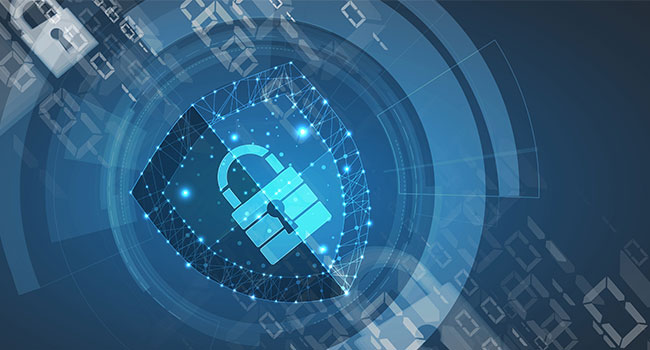
How Mobile and Internet Service Providers are Protecting Subscribers from Cyber Attacks
- By Angel Fernandez
- Aug 03, 2020
Millions of people all over the world are under stay-at-home orders to slow the spread of COVID-19, and many more people are now working in their personal space, often on their personal computers and phones. These trends have led to a rise in fixed and mobile network traffic all over the world. In Britain, internet traffic increased into the double digits in broadband use, while cellular network traffic is up 50% for some mobile carriers across Europe. This increase in online activity makes a much wider target for cybercriminals looking for new entry points. Many, if not most, consumers are unaware that they can effortlessly be protected by their mobile and internet service providers that adopt network-based security solutions.
Currently, in 80% of the cyber threat landscape, a coronavirus theme is applied in some manner. Cybercriminals are disguising malicious websites as legitimate ones that host malware, duping users into downloading them. For example, CovidLock is ransomware disguised as an Android application that shows a COVID-19 global heat map. Cybercriminals are also spreading malicious websites via phishing emails, in some cases posing as the Center for Disease Control and Prevention (CDC) in the US and the European Centre for Disease Prevention and Control.
These threats necessitate that businesses and individuals take steps to protect themselves at home. Communication service providers, such as mobile carriers and internet service providers, who already have access to nearly all smart devices are in an excellent position to provide cyber protection to homes and devices, instantly and simply.
The first line of defense
The most common digital methods used by cybercriminals to lure victims are phishing e-mails containing malware hidden in documents and links through apparently “legitimate” websites that steer towards nefarious ones. If consumers find themselves with emails that evoke a sense of urgency or strong emotions, they should keep calm and be cautious of trusting the email’s content as it is a common tactic for phishing scams. It is important to think twice before providing personal details, downloading attachments or clicking links in any email or message, especially from an unknown sender.
Consumers are equally advised to safeguard the contents of their email with strong passwords and two-factor authentication, whether via email or SMS, for substantially more protection. One of the most fundamental principles of strong passwords is related to length; longer passwords are harder to crack. It is also vital to use unique passwords for each website, change them regularly and avoid using passwords based on personal information. To make a password that is easy to remember but difficult to guess, consumers should use a chain of numbers, symbols, and upper and lowercase letters, such as CyP4$sF to represent “change your password frequently.” Password manager programs can also randomly generate and store strong login credentials for all accounts but consumers must create strong master passwords.
Computer passwords are not the only passwords that should be changed and reinforced; home routers should be configured as well. However, changing the router password is not always enough. Once a home router is compromised, every device connected to the home network is at risk, which means cybercriminals can easily get access to every device and information stored within the device – from WiFi passwords to sensitive information on a phone. Furthermore, an attack that gains access to a home router can potentially see any traffic running across that network and execute any number of effective attacks. However, internet of things (IoT) devices are vulnerable and difficult to secure without a network-based solution (no matter what consumers do).
Mobile and internet providers can offer an extra layer of protection
During these dangerous times, wireless customers need a reliable security solution that protects them both from malicious URLs and infected files. To combat the variety of threats out there, many top mobile operators, like Telefonica, Hutchison Drei, and Vodafone, are turning to network-based security solutions to provide cybersecurity services that protect their customers.
Network-based security stops threats at the operator network level, far from customer smartphones and computers. It’s like stopping the bad guys at the entrance to your city instead of at the front door of your house. Because the protection runs on the network, no download is needed and requires absolutely nothing from customers other than agreeing to have it. Running in the background, the security solution becomes resident on the network already in place. Network-based security is compatible with any device and any operating system and is always up-to-date to confront the latest threats, which is good news for mobile and fixed subscribers.
Safe at Home
Communication service providers can not only provide this level of security for mobile devices but for computers as well, with solutions that deploy remotely on customer premise equipment (CPE), such as the home router, to secure homes from outside cyber threats.
By securing the CPE, the service provider actively uses AI to learn what devices are in the network and what their ‘normal’ behavior patterns are, then scans the internal network for vulnerabilities to prevent zero-day attacks and DNS manipulation, as well as block malicious code. It ensures those working from home need not worry about their information being compromised and can also have the option to add parental controls for their children’s devices. This becomes especially relevant as schools move to virtual classes and online entertainment and gaming surges.
Whether working from home or in the office, consumers should always take additional steps to protect themselves and their personal information from malicious cybercriminals, and mobile and internet service providers can protect these “work from home” (WFH) and “always-online” customers with cybersecurity services that protects all their smart, connected home devices.